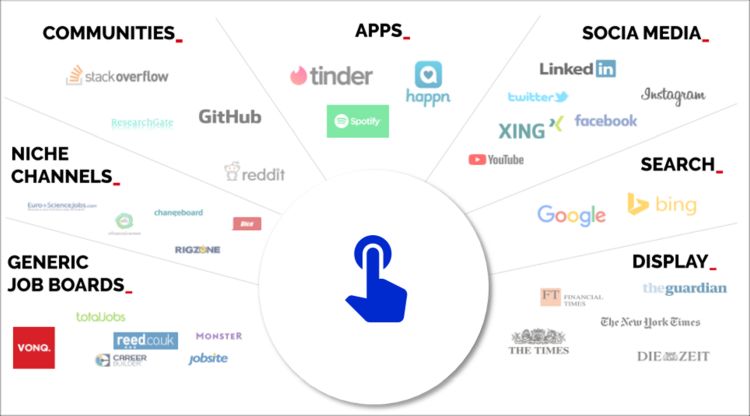We all set ourselves goals and try to achieve them. Because only if you have a goal can you measure your success later on - regardless of whether it is a professional Goal Setting or personal goal. However, only by formulating your goals appropriately can you avoid confusion and frustration when it comes to determining whether they have been achieved. A suitable method for this is the SMART formula. Find out here what the SMART formula is all about and how it can help you formulate goals.
What is the SMART formula?
The SMART formula is a guide for goal formulation. It defines criteria for meaningful goals and is intended to enable a simple definition of goals on the basis of fixed and comprehensible standards. There are various variations of the SMART goals, which add additional criteria to the mostly constant SMART core. For example, there is the SMARTER, SMARTTA and SMARTS formula. In practice, however, the SMARTI formula in particular has proven itself.
Who invented the SMART goals?
The SMART goals were first mentioned in 1981 in an economics essay by George T. Doran. In it, Doran formulated a method that can be used to set goals systematically. While its version differs in detail from today's SMART formula, the basic principle is the same.
Reconciling goals with the SMART(I) formula
With the SMARTI formula, goals can be formulated particularly precisely – regardless of whether they are personal or professional personal development goals. Each letter represents a criterion that should be taken into account when setting the objectives.
- S specific and S impel → When it comes to goals, it should be clearly stated what is to be achieved and what the result should look like.
- Measable → Quantitative targets are easy to measure, but qualitative targets should also be based on specific values.
- A ttractive → goals should be motivating, inspiring and, above all, can be influenced by the employee himself.
- Objectively → should be ambitious, but still realistic – the goal must be achievable with the existing framework conditions.
- T erminiert → It is essential to have a clear time window for achieving the goal.
- I nintegrated → The individual goals should also support overarching goals. Think about the company's goals.
When do SMART goals work?
SMART goals are an important part of the management technique Management-by-Objectives (MbO for short) in the professional environment. The basic idea of the MbO is that through leadership by means of target agreements, individual work is aligned with collective goals. These agreements only work if the individual goals of the employees are in line with the strategic business goals of the organization.
Among other things, SMART target agreements and MbO are intended to lead to higher motivation and greater commitment on the part of employees as well as to improved communication and coordination throughout the organization. To do this, however, it is necessary that working with this type of goal definition is anchored in the corporate culture. Goals should be defined and reviewed not only for individual employees, but for all organizational and hierarchical levels. Otherwise, MbO can lead to the fact that working with target agreements is perceived as an unnecessarily high expenditure of time, leads to great pressure to perform and a feeling of control among employees. The key advantage of MbO is that the company's goals are transparent to all employees. By deriving their goals from this, each department and each individual employee contributes their part to the achievement of the overall goals.
Goal formulation made smart
A crisp and precise formulation of goals helps immensely to keep an eye on the "why" of an activity – whether in a professional or private environment. Far too often, however, goals are defined too imprecisely. Only if the goal formulation is smart – i.e. specific, measurable, attractive, realistic and time-bound – can the achievement of goals really be evaluated in retrospect.
Conclusion: Reaching your goal SMART
Smart goals ensure comparability and thus promote motivation. In the professional environment, therefore, only goals that are based on the SMART formula should be agreed. Only these will help you achieve the desired effect. In addition, suitable HR software creates transparency by documenting and tracking the agreed goals and the degree to which they have been achieved.

Christoph Herzog
Editor: Haufe Talent
Christoph Herzog is interested in people and how they can work better together in the digital age. He is an editor at the Haufe Group, father of a daughter and likes to walk on narrow paths.




